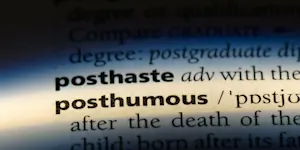What Makes This Word Tick
The word "staid" is like a reliable old friend who's always there for you, steadfast and serious. It embodies a sense of unchanging composure, a personality trait that leans more toward the traditional and reserved end of the spectrum. You might think of it as the verbal equivalent of a sensible pair of loafers or a classic three-piece suit.
If Staid Were a Person…
Meet Mr. Staid, the type who wouldn't dream of wearing jeans to a dinner party. Always on time and never lacking for a good anecdote, he’s the voice of reason in any group gathering. He’s likely got a favorite chair and a strict preference for Earl Grey over anything exotic.
How This Word Has Changed Over Time
Staid has remained fairly steady, much like its meaning. Originating from the past participle of "stay," it once implied someone who had stayed put, both literally and figuratively. Over time, though our lives have sped ahead, "staid" holds its ground, imbuing a sense of unflappable continuity amidst the chaos.
Old Sayings and Proverbs That Use Staid
While not common in traditional proverbs, it works beautifully in expressions highlighting timelessness, such as “the staid pillar of the community,” suggesting someone dependable and dignified. It might remind you of the timeless wisdom offered by the more predictable aspects of life.
Surprising Facts About Staid
Despite its sedate connotations, "staid" pops up in various unexpected places, from literature to colloquial English. It's also one of those words that sounds almost exactly like how it feels—soft and solid, like the very ground upon which we tread!
Out and About With This Word
You might encounter "staid" in serene settings like a quiet library or an art gallery filled with classic works. It’s often used in describing the atmosphere at places where decorum and a sense of the established are appreciated.
Pop Culture Moments Where Staid Was Used
Though "staid" may not headline flashy pop culture events, it lurks in the background, contributing to any setting where classic stability is highlighted. Think of any TV or movie character who embodies the quiet dependable type—a Mr. Carson from Downton Abbey, perhaps!
The Word in Literature
In literature, "staid" characters are often the backbone of the story—those unwavering hands steering the ship through rough seas. Classic novels from authors like Jane Austen or Charles Dickens might feature staid figures as grounding influences amid life's ups and downs.
Moments in History with Staid
Consider the staid fortitude of citizens during times of national struggle—like London's population during the Blitz in World War II. In such times, a sense of staid determination can be both a shield and a sword.
This Word Around the World
Globally, the concept of "staid" transcends language, though translations often change its flavor slightly. In French, "sérieux" captures a similar restraint, while in German, "ernst" conveys the seriousness inherent in the word.
Where Does It Come From?
The roots of "staid" lie in the Middle English word "staide," tied closely to "stay," reinforcing the idea of remaining constant or settled. This lineage is fitting for a word that itself has staunchly maintained its demeanor through the years.
How People Misuse This Word
"Staid" is sometimes mistakenly used to describe anything old-fashioned or outdated, missing its core attributes of steadfastness and dignity. It’s more about character than chronological age.
Words It’s Often Confused With
Stayed: Typically a past tense of "stay," sometimes misused interchangeably with "staid."
Stale: Suggests something old or not fresh, lacking the gravitas that "staid" implies.
Static: While also implying a lack of change, "static" leans more toward physics or motionlessness than personality.
Additional Synonyms and Antonyms
Synonyms for "staid" include composed, steady, and unflappable. Antonyms you might encounter are flamboyant, whimsical, and erratic.
Want to Try It Out in a Sentence?
Her staid demeanor at family gatherings made her the go-to person for calming any crisis or restoring order when the lively debates threatened to get out of hand.
















